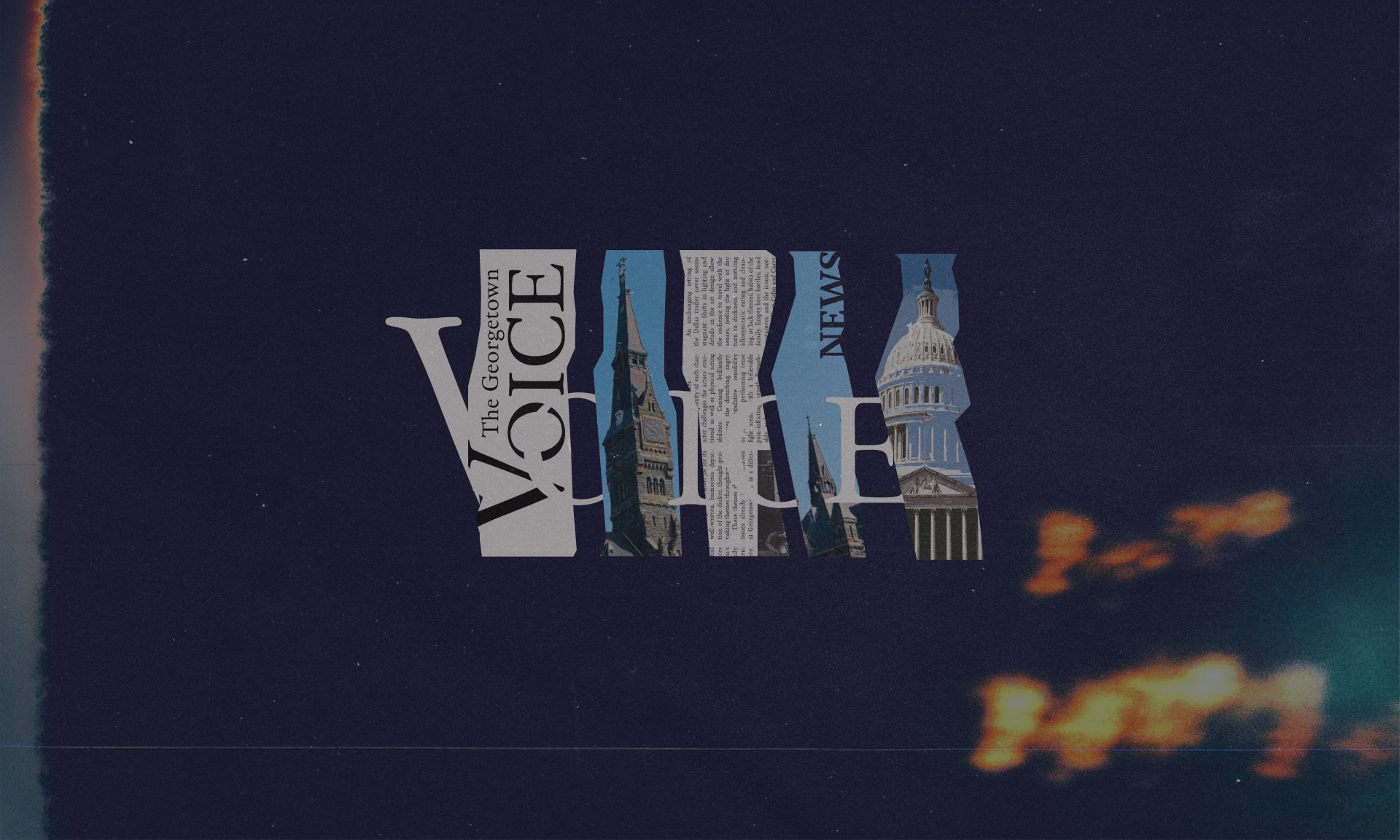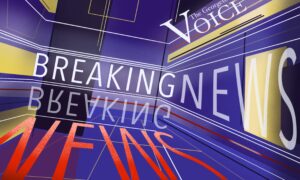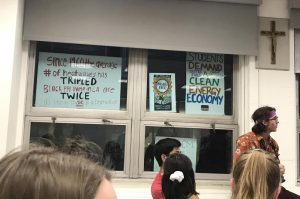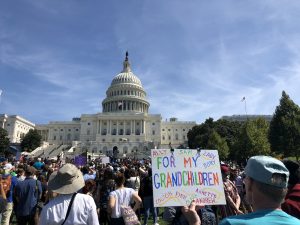The Foundation for Individual Rights and Expression (FIRE) released its 2025 College Free Speech Report on Sept. 5, with Georgetown ranked 240 out of the 251 colleges studied. The report’s findings, while continuing dialogue around free speech on campus, have also been questioned by some students.
Discussions around campus free speech have been prevalent since the beginning of the semester. In September, Georgetown Students for Justice in Palestine (SJP) organized a protest in response to concerns that the university was targeting their right to speech. In the 2024-25 Blueprint Manual, a document that contains guidelines for student organizations, a list of possible event “risk factors” included: “Are you anticipating any demonstration or protest in opposition to your event’s topic, including those related to Israel, Gaza, and Palestine?”
These risk factors are used to determine if the university requires a police presence at the event. SJP alleged that this phrasing could be used to place an undue financial burden on their freedom of expression.
“There are no differences in how we implement our policy based on the viewpoint of the event,” a university spokesperson wrote in an email to the Voice after the release of the Blueprint manual. “This practice is not new and applies only to event planning. This does not apply to rallies or protests.”
The release of the FIRE report also comes after Georgetown announced the launch of its new speech and expression website in an email to students on Aug. 26.
“Now more than ever, it is critical that our community members think about how we can engage in respectful and meaningful discourse and dialogue,” the email said.
In the organization’s 2025 report, Georgetown ranked last out of all colleges in Washington, D.C. for free speech, though its placement rose slightly overall compared to last year’s report. FIRE calculated composite scores by assessing 14 different metrics, including “Comfort Expressing Ideas” and “Openness,” which Georgetown received positive ratings on, and “Disruptive Conduct,” “Administrative Support,” and “Tolerance for Controversial Conservative Speakers,” which the university performed poorly on.
FIRE did not respond to the Voice’s request for comment, other than to send the publicly available report.
In a statement regarding the report, a university spokesperson maintained Georgetown’s commitment to free speech.
“Georgetown’s long-standing Speech and Expression policy protects the fundamental right of members of our community to free expression, dialogue and academic inquiry. We respect the rights of members of our community to express their personal views and are committed to maintaining the values of academic freedom and serving as a forum for the free exchange of ideas, even when those ideas may be controversial and objectionable to some,” a university spokesperson wrote in an email to the Voice.
This marks the fifth year that FIRE, a non-profit centered around free speech advocacy, lobbying, and litigation, has released a report on campus free speech.
FIRE determined Georgetown’s performance based on a survey of 102 Georgetown undergraduates; according to the report, students surveyed came from College Pulse’s American College Student Panel and were “recruited by a number of methods to help ensure student diversity.” According to the company’s website, it finds student respondents via online advertising, email campaigns, and partnerships with university organizations. FIRE did not respond to the Voice‘s request on the specifics of that process. The FIRE survey then asked students questions about free expression.
Kristian Skovrup (CAS ’26), the director of criminal justice at Georgetown’s undergraduate chapter of the ACLU, expressed concerns about the report’s methodology. He was also concerned about its definition of ‘self-censorship,’ responding to the report’s finding that 51% of Georgetown students ‘self-censor’ once or twice in a given month.
“Everybody, when they have a conversation, they frame their points in certain ways so they can get them across to different people,” Skovrup said. “When I’m talking to you, I’m not going to talk to my professor in the same way, just because of the nature of the relationship. If they’re calling that self-censorship on divisive issues, then yeah, of course that’s going to happen. It’s a weird metric to do it on.”
The rankings measured the extent to which universities protect the free speech of student groups, faculty, and campus speakers. FIRE deducted points from Georgetown’s overall score for four sanctions—or penalties—against scholars and three sanctions against students. Georgetown’s rating was also impacted by one deplatforming, which FIRE defines as “efforts to censor” on-campus programming, as well as one attempted disruption of an event. The incidents cited occurred between 2021 and 2024.
However, Skovrup argues that the organization lacks the adequate information to make informed ratings.
“It seems as if they’re nitpicking things and looking at the community from the outside in,” Skovrup said. “The bottom line is, they’re an outside organization. They don’t have the ability to understand the community in the way that we do.”
Though FIRE is a bipartisan organization, it has faced criticism about its funding. Many of its largest donors, such as the Charles Koch Institute, are linked to conservative causes.
Tax records from 2017 indicated that FIRE provided funding to an event for Turning Point USA, a conservative student organization, though documents from the 2022-2023 fiscal year show that the organization has focused most recent funding on college alumni free speech organizations.
The organization strongly denies any partisan associations, stating that FIRE regularly advocates and litigates on behalf of both liberal and conservative individuals. In a 2022 interview with Politico, FIRE President Greg Lukianoff reasserted this, saying, “We’re genuinely nonpartisan in the cases we take.”
Another concern raised about the report is that FIRE considers hate speech as a type of free speech. The report penalizes Georgetown for three instances in which law professors were required to undergo mandatory training, suspended, or terminated after making racially prejudiced comments.
Whether hate speech should be a protected form of free speech is an ongoing debate. The First Amendment protects most forms of hate speech unless it incites violence against another individual, though private universities are not subject to this standard. Organizations like FIRE and the ACLU believe that criminalizing hate speech could lead to restrictions on other types of expression because hate is a subjective term. Many universities, including Georgetown, penalize prejudiced language, which could lead to lower rankings according to FIRE’s standards.
“Our policy also makes clear that we do not tolerate speech that defames a specific individual, constitutes a genuine threat, or violates our Harassment Policy, and we maintain other limited exceptions related to time, place, and manner,” Georgetown wrote in an August email to students.
In addition to sanctioned professors, the report included several incidents related to student groups. One example cited in the report occurred in 2023, when the Heckler, a satirical student newspaper, parodied campus pro-life group Right to Life’s logo with a banner reading “Right to Feet.” Right to Life filed a complaint with the university in response, which in turn required the Heckler to “cover up the logo on the banner and censor the school’s name with tape,” according to the report.
According to Reilly Lowell (SFS ’25), editor-in-chief of the Heckler, the group put a line of tape through the heart on the logo and the first “e” in Georgetown. Lowell does not believe the request to cover Georgetown’s name was a violation of free speech, but she feels differently about the Right to Life logo, as it was a publicly licensed image.
“The fact [Right to Life] felt so strongly about its replication did not help anyone take them any more seriously, which is essentially what we were trying to point out in the first place. I think they actually helped us hit the joke home,” Lowell wrote in an email to the Voice. “We almost didn’t mind the imposed change because it helped make our point.”
Lowell said she was unaware if FIRE ever reached out to members of the Heckler to confirm details about the incident.
The report also discusses the cancellation of a Georgetown College Republicans (GUCR) speaker event titled “We Walked Away from the Left — Why You Should Too” featuring conservative influencers Brandon Straka, Natalie Beisner, Shemeka Michelle, and Gothix.
Straka pled guilty to a misdemeanor charge in 2022 and is a convicted Jan. 6 rioter. Given the controversial nature of the event, the university notified the club about a $4,000 security fee and the requirement to rope off the front rows of the auditorium. After agreeing to the requirements, “the speakers were notified that the event had been canceled because there wasn’t sufficient time to deal with security concerns,” the FIRE report said.
Following the cancellation of the event, Straka condemned it on X, the platform formerly known as Twitter.
“We are extremely disappointed as well, as we always are when the left engages in intentional subterfuge and sabotage to try to stand in the way of us getting our message out,” he wrote.
Straka also posted a screenshot of an email he received from Patrick Ledesma, director of the Center for Student Engagement. In the email, Ledesma explained that the university typically requires 30 days notice for speaker events.
GUCR did not respond to repeated requests for comment regarding FIRE but emailed a statement to the Voice in April 2023 following the cancellation of the event.
“The event’s cancellation was caused by credible safety concerns. We never want to put our members or the Georgetown community in harm’s way,” Ian Cruz (SFS ‘25), president of GUCR, wrote.
In addition to the overall ranking, colleges received a red, yellow, or green light ranking based on their written free speech policies. Georgetown was given a red light for “maintaining a policy prohibiting ‘incivility,’ defined as ‘behavior, either through language or actions, which disrespected another individual.’”
“This sort of policy language is overly broad, implicating broad swaths of speech typically protected under First Amendment standards,” the report said.
Notably, this is a policy that was present in the 2023-2024 Code of Student Conduct but the University removed from the revised 2024-2025 code.
Georgetown’s current policy on Speech and Expression states that “concerns about civility and mutual respect can never be used as a justification for closing off the discussion of ideas, no matter how offensive or disagreeable those ideas may be to some members of our community.”
However, some continue to feel that Georgetown is falling short in this regard.
“If you have something to say at Georgetown, you will be able to find a way to say it, but they’re going to make it hard for you if it doesn’t ‘align with their values’ or whatever. I think Georgetown is careful enough never fully to snuff a voice out, but they will make it clear that they do not endorse it,” Lowell wrote.
While Skovrup affirms that Georgetown should continue to be attentive to free speech concerns, he is largely optimistic about free expression on campus.
“I think we’ve been incredibly lucky,” Skovrup said. “I think things could have been a lot worse than they have been so far. I think that despite some of the missteps of the administration, they’ve been doing things like interfaith dialogues and at least having some sort of conversation.”






